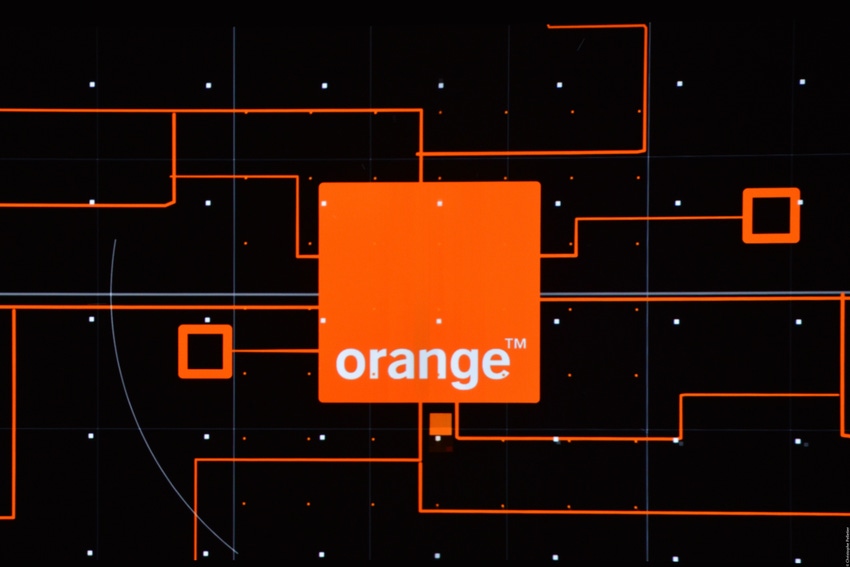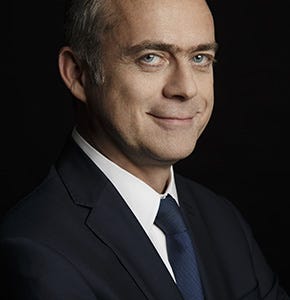Hailing back to its most famous marketing slogan, the CFO of Orange told Telecoms.com its plans for future 4G and fibre rollouts across Africa, saying the future’s bright for the continent.
July 29, 2016

Hailing back to its most famous marketing slogan, the CFO of Orange told Telecoms.com its plans for future 4G and fibre rollouts across Africa, saying the future’s bright for the continent.
In an interview with Telecoms.com, Ramon Fernandez, the French telco’s Chief Finance and Strategy Officer, said it is expecting to complete 4G roll outs in all of its African markets by 2018. Fernandez believes that Africa’s rapidly evolving technology landscape and growing middle class represents a sizeable opportunity over the next three years.

Orange Chief Finance And Strategy Officer Ramon Fernandez
“The first step was to get into a position to offer 3G everywhere,” he says. “This is not a trivial matter because it is only since 2016 that we’ve been in a position to offer 3G in all our countries. In Africa, 4G follows 3G very closely, whereas in Europe there was a time lag of several years between the two; but in Africa in fact 4G networks are replacing 3G very rapidly.
“We’ve now got 4G in nine countries, but you just don’t have a choice. If the license and the spectrum is going to be made available you have to get it straight away, otherwise the disadvantage in terms of competition is going to be significant. So when 4G arrives in countries like Sierra Leone or Egypt, you have to get it.
“The objective is when 4G arrives, to be there, to be a promoter and an operator; so it will take a while before we see 4G everywhere. So it might take some time in some countries, but before too long you’ll see 4G across Africa.”
When asked his expected time line on when Orange will be able to acquire aforementioned licenses and spectrum for 4G in the remaining 10 markets in which it operates, Fernandez says next year or 2018 is a very realistic target.
Earlier this year, Telecoms.com spoke to Deputy CEO Gervais Pellissier, who revealed Orange’s plans to plough €15 billion into fibre and 4G infrastructure over the next three years. According to Fernandez, a proportion of that is reserved for the expansion of its presence in Africa, with fibre likely to play an increasing role in the years to come.
“While I don’t have specific numbers to hand, a portion of the €15 billion investment is earmarked for 4G and fibre in Africa,” he says. “The bulk of the effort is fibre in France and Spain, and that’s a big investment because fixed investment is more demanding and expensive. In Africa, the question is about bringing fibre to the home; and we are working on the opportunities now. We’re reflecting on the economics of an FTTH roll out in Africa; but we need to see how feasible this is.
“We are looking into African FTTH right now.”
FTTH is one of the premium broadband offerings emerging today, and represents a cost-intensive exercise for operators which needs to yield a return. Fernandez says the average ARPU of African citizens is on the rise, as a new and wealthier middle class emerges across the continent.
With that in mind, and to proliferate connectivity among a significant number of disconnected citizens, Orange has launched a variety of mobility services – ranging from solar-based PAYG electricity offerings, pan-African roaming passes and two new smartphones at a low price point capable of accommodating the full suite of Orange’s digital services on 3G and 4G.
“The new services we’re promoting are very interesting, such as mobile banking and energy, agriculture and so on; they are all based on mobile broadband,” says Fernandez. “So we’re benefiting from the economic growth in our markets from the emergence of middle class people who have access to smartphones. Today there’s a smartphone penetration of 16% across the continent, which is expected to double in the next two or three years.
“This is a huge market where we must be in a position to offer the appropriate services with the best quality and best quality of the network; so this is a priority. In Africa, the mobile market is a means to jump a whole generation and accelerate the capacity to access the same services in mobile which, in other markets, are done on fixed. This use of mobile brings very high bandwidth and the quality of service which is equivalent to fixed services in more advanced economies.
“The future is bright for Africa.”
About the Author(s)
You May Also Like








.png?width=300&auto=webp&quality=80&disable=upscale)


_1.jpg?width=300&auto=webp&quality=80&disable=upscale)


.png?width=800&auto=webp&quality=80&disable=upscale)